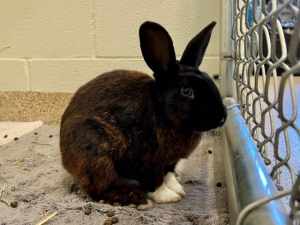Why is February spelled weird? We have a plethora of oddly spelled words in the English language, but February is pretty much the only of our calendar months to be classified as oddly-spelled. Why is that?
Well, like the eleven other, more intuitively spelled months, we have Latin to thank (or blame, as the case may be).
The month of February was known as “Februarius” to ancient Romans, from the word “februare”, which meant “to purify” in ancient Latin. Basically, Februarius was the month of purification.
The month revolved around “Lupercalia”, a wild festival that took place on February 15th & featured sacrifices, whippings, and plenty of nudity (or, at the very least, far less clothing than folks would normally wear around that time of year). Houses were purified with roasted grain & salt, land was purified with animal hide strips, priests wore crowns of leaves taken from pure trees, etc. While we don’t know precisely what Lupercalia was actually for, history seems to suggest all the purification rituals were intended to trigger prosperity & fertility.
Around the beginning of the 13th century, Middle English speakers were calling the month “Feverer” or “Feverell”, and that persisted for several more centuries before the Latin-inspired versions of the month (Februere / Februari) began turning up again in the late 1200s. And, for the most part, the latter is what has stuck around ever since.
So, why don’t we pronounce the first “r” in February nowadays? Basically, it’s because we’re lazy. Linguistically lazy, that is. Because many people have a hard time enunciating words with two R’s near each other, a lot of folks will commonly just drop one of them.
Whatever you call this month we’re in, and however you say it, if you’ve got a Mundane Mystery you’d like solved send me a message via Twitter (@AndyWebbRadio), or shoot me an email at [email protected].



